Revolving around the possibility of Ukraine being allowed to use Western weapons to attack military targets in Russia, Mr. Trump and the 2024 US presidential election, the situation on the Korean peninsula and the Gaza Strip... are some of the outstanding international events in the past 24 hours.
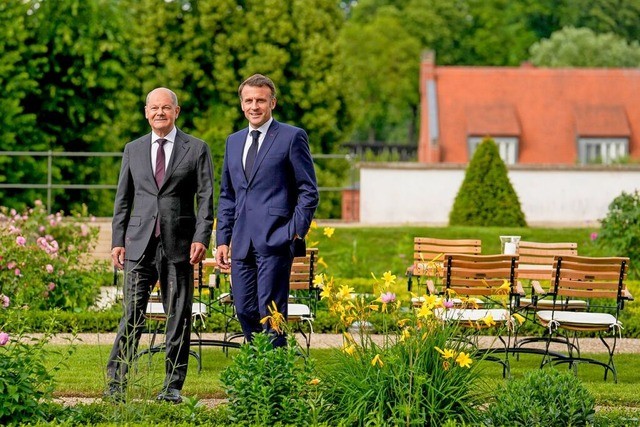 |
| French President Emmanuel Macron (right) and German Chancellor Olaf Scholz met on May 28 in Meseberg, eastern Germany. (Source: DPA) |
Europe
* France and Germany agreed to let Ukraine use Western weapons to attack military targets in Russia, but only in places Moscow uses to fire missiles towards the Eastern European country.
French President Emmanuel Macron and German Chancellor Olaf Scholz made the announcement at a joint press conference, stressing that Ukraine must not attack other locations.
Mr. Macron said the decision would not escalate the current conflict in Ukraine.
Chancellor Scholz's move marks a change in stance, as just a few days earlier the leader had affirmed that there were no plans to allow Kiev to attack military targets on Russian territory with weapons supplied by Germany.
NATO Secretary General Jens Stoltenberg has also repeatedly called in recent days for the lifting of restrictions on Ukraine's use of Western weapons to attack military targets on Russian territory.
However, the White House ruled out such a possibility for US-supplied weapons, stating: “There is no change in our policy at this time. We do not encourage or permit the use of US-supplied weapons for attacks inside Russia." ( AFP)
* Russia warns NATO is "playing with fire": Russian President Vladimir Putin warned that NATO member countries are "playing with fire" if they allow Ukraine to use weapons aid from the West to attack deep into Russian territory, which could even cause "serious consequences".
Noting that Europe “should realize what game they are playing”, Mr Putin added that even if Ukraine carried out attacks, Moscow would also hold Western arms suppliers responsible.
Regarding the West sending military instructors to Ukraine, the Russian President stressed that any official move to send troops would be another "escalation" and "another step towards a serious conflict in Europe and a global conflict". (The Sun)
* Belarus officially suspended the Treaty on Conventional Armed Forces in Europe (CFE) after the country's President Alexander Lukashenko signed it into law.
The law, passed by the Belarusian lower house on April 17 and the upper house on May 6, states that the suspension is aimed at ensuring Belarus' national interests and responding to similar decisions by NATO members. (TASS)
* EU-Norway sign new Security and Defence Partnership Agreement, covering existing areas of cooperation such as continued joint support to Ukraine; Oslo's participation in missions and activities within the EU's Common Security and Defence Policy (CSDP), as well as participation in EU defence initiatives.
In addition, the agreement also promotes practical cooperation in areas such as maritime security, cybersecurity, countering foreign manipulation and interference in information, including disinformation, and introduces new consultations on peaceful mediation.
The partnership also identifies new opportunities for joint actions, for example on critical infrastructure resilience and underwater infrastructure protection, as well as promoting on-the-ground cooperation between EU Delegations and the Norwegian Embassy. (EEAS)
* Poland will re-establish a 200m buffer zone on its border with Belarus early next week, according to Prime Minister Donald Tusk.
The border area has become a hotspot since migrants began arriving in 2021. In recent weeks, the number of migrants attempting to cross illegally has increased and Polish border guards have recorded several violent incidents.
Polish Defense Minister Wladyslaw Kosiniak-Kamysz said that Poland is ready to increase the number of troops on the border with Belarus, which currently stands at 5,500. In addition, Poland plans to spend 10 billion zlotys ($2.55 billion) to strengthen border security with Belarus. (TASS)
| RELATED NEWS | |
| NATO Secretary General insists on letting Ukraine 'neutralize' Russian military facilities, French President supports, Moscow speaks out | |
Asia-Pacific
* South Korea and UAE sign Comprehensive Economic Partnership Agreement (CEAP) : On May 29, South Korean President Yoon Suk Yeol held a summit with his United Arab Emirates (UAE) counterpart Mohammed bin Zayed Al Nahyan, who is visiting Seoul.
The two countries' leaders discussed cooperation plans in four areas: conventional and clean energy; nuclear energy; economics and investment; defense and defense technology.
During the Summit, the two sides signed the CEAP Agreement to establish a foundation for strengthening the economic partnership between the two countries in all areas, including trade liberalization and investment expansion. The UAE is the first Arab country with which Korea has signed this agreement.
After the Summit, the Presidents of the two countries attended the signing ceremony of a total of 19 agreements, memorandums of understanding and letters of intent for cooperation. (KBS)
* US-South Korean Air Forces conduct live-fire drills in the Yellow Sea from May 27-30. This exercise is hosted by the Air Combat Command of the Republic of Korea Air Force, with about 90 aircraft.
The exercise was planned in advance, focusing on establishing a ready posture to deal with provocations from opponents, improving the pilots' ability to operate weapons and attack targets.
Air-to-air missiles such as the AIM-9X and AIM-120B, bombs and air-to-ground missiles such as the GBU-31 and AGM-65G hit the simulated targets. (Yonhap)
* North Korea-South Korea tensions over leaflet dropping: On May 29, military sources revealed that the South Korean army discovered more than 150 balloons believed to have been released by North Korea across the border between the two countries.
The move comes after North Korea warned of "tit-for-tat action" against South Korean activists' leaflet drops aimed at spreading propaganda against Pyongyang.
Some of the balloons that fell to the ground were not carrying leaflets but trash and other waste, the source said. The South Korean military and police are now collecting the balloons. (Yonhap)
* Indonesia plans to host the 5th Multilateral Exercise Komodo (MNEK), scheduled to take place in Bali in February next year. The Indonesian Navy (TNI AL) has invited navies from 56 countries to participate in the exercise, which is aimed at practicing humanitarian assistance for disaster relief.
Affirming that all countries, including those with conflicts with each other, can be invited, Navy Captain Lukman Kharish said: “We hope this exercise can bring countries together and we want to show them that this exercise is feasible and has high value for the navy.”
Thirty countries have now confirmed their participation in the exercise. (Antara News)
* China and Japan have agreed to resume talks between their ruling parties for the first time in six years, a source in Japan's coalition government said on May 29.
Accordingly, Secretary General of Japan's ruling Liberal Democratic Party (LDP) Motegi Toshimitsu reached an agreement with Liu Jianchao, Head of the Central Committee's International Liaison Department of the Communist Party of China, on the above issue during a visit by Chinese officials to Tokyo.
However, details on how and when the talks will start have yet to be finalized. (Reuters)
| RELATED NEWS | |
| US-South Korean Air Forces conduct live-fire drills in the Yellow Sea, mobilizing missiles | |
Middle East-Africa
* The fighting in Gaza will last at least another seven months , according to Israeli National Security Advisor Tzachi Hanegbi on May 29.
Mr. Hanegbi also said that the Israeli army has controlled 75% of the Philadelphia Corridor running along the border of the Gaza Strip and Egypt. (12TV)
* Israel has not yet crossed the "red line" after the airstrike in Rafah that killed 45 people, for the US to change its policy on aid to this Middle Eastern ally, according to a statement from the White House.
However, Washington is "actively talking" with officials in Israel to determine exactly what happened in Rafah, and is asking its close ally to conduct a comprehensive investigation into the incident.
US State Department spokesman Matthew Miller said the Israel Defense Forces had promised to conduct a prompt investigation into the airstrike. (The Guardian)
* Aid deliveries via the US pier have been suspended after a section of the pier collapsed, possibly due to bad weather.
According to Pentagon spokeswoman Sabrina Singh, the pier broke on May 28 and will be towed to the Israeli port of Ashdod for repairs. The repairs are expected to take more than a week, after which the pier will be returned to its original location off the coast of Gaza.
Earlier in the day, several US officials who requested anonymity said the pier collapsed possibly due to bad weather.
According to a spokesman for the United Nations World Food Programme (WFP), since the pier came into operation, it has served 137 truck trips carrying aid, equivalent to 900 tons, to Gaza.
Meanwhile, the transportation of aid into Gaza by land has also encountered many difficulties. Palestinian Health Minister Majed Abu Ramadan said that there was no sign from Israel that the Rafah crossing could be reopened soon. (Daily Sabah)
* The Democratic Republic of Congo (DRC) has formed a new government, ending months of political deadlock. The new cabinet of the DR Congo includes 54 ministers, down from 57 ministers in the previous government. (Reuters)
* The US and Sudan discussed ending the conflict in the East African country during a phone call between US Secretary of State Antony Blinken and Commander-in-Chief of the Sudanese Armed Forces Abdel Fattah al-Burhan.
The two sides also discussed measures to “allow unhindered humanitarian access to alleviate the suffering of the Sudanese people,” the resumption of peace talks and the protection of civilians, as well as the easing of hostilities in the city of al-Fashir, the capital of North Darfur state. (Reuters)
| RELATED NEWS | |
| Rafah refugee camp airstrike: Death toll updated, Israel admits 'tragedy', EU calls for action | |
America
* Mr. Donald Trump faces an important moment for the 2024 US presidential election race, when on May 29 (local time), 12 members of the jury in the criminal trial in New York - trying 34 crimes that he is accused of - will give the final verdict.
If Mr Trump, the Republican nominee, is found guilty on any of the 34 charges, it would threaten to upend a presidential election that has so far largely favored him.
In a Bloomberg News/Morning Consult poll earlier this year, 53% of voters in key battleground states said they would not vote for Mr. Trump if the former president was convicted.
If convicted, the judge could sentence Mr. Trump to probation or sentence him to up to four years on each count in state prison, for a maximum of 20 years. (AP)
* Argentina and Chile discussed strengthening strategic relations during talks between Foreign Ministers Diana Mondino (Argentina) and Alberto van Klaveren (Chile).
The foreign ministers agreed to implement specific measures to address outstanding issues in improving operations at border gates between the two countries.
In addition, the two sides also emphasized the importance of completing infrastructure works to promote the project "Road Corridor connecting the two coasts of the Pacific and the Atlantic" within the expected time, allowing for increased integration and connection of economic centers in Argentina, Brazil, Chile and Paraguay.
* Venezuela has withdrawn its invitation to the EU to monitor the presidential election taking place in the South American country next July. Venezuela has accused the EU of “interference”.
The move comes after the EU eased sanctions on the head of Venezuela's electoral council, while Caracas demanded the full lifting of sanctions against the figure. (AFP)
* Haiti's transitional council appointed interim prime minister Mr. Garry Conille, who briefly held the position of head of the Haitian government a little more than a decade ago.
Notably, Haiti's new interim Prime Minister has more than two decades of experience working in the development sector, mainly in international NGOs and the United Nations. Since January 2023, Mr. Conille has served as the Regional Director of the United Nations Children's Fund (UNICEF) for Latin America and the Caribbean. (Reuters)
Source: https://baoquocte.vn/tin-the-gioi-295-duc-quay-xe-theo-chan-phap-nga-phat-canh-bao-choi-voi-lua-ong-trump-truoc-phan-quyet-lich-su-273039.html


![[Photo] Solemn opening of the 8th Congress of the Central Public Security Party Committee, term 2025-2030](https://vphoto.vietnam.vn/thumb/1200x675/vietnam/resource/IMAGE/2025/10/4/f3b00fb779f44979809441a4dac5c7df)

![[Photo] General Secretary To Lam attends the 8th Congress of the Central Public Security Party Committee](https://vphoto.vietnam.vn/thumb/1200x675/vietnam/resource/IMAGE/2025/10/4/79fadf490f674dc483794f2d955f6045)

![[Photo] Bustling Mid-Autumn Festival at the Museum of Ethnology](https://vphoto.vietnam.vn/thumb/1200x675/vietnam/resource/IMAGE/2025/10/4/da8d5927734d4ca58e3eced14bc435a3)



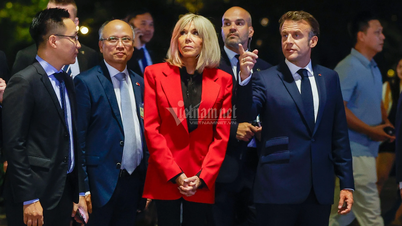



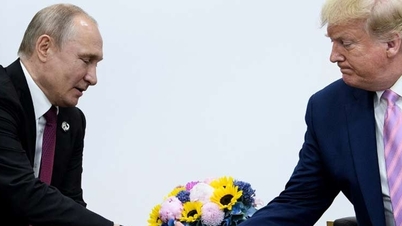
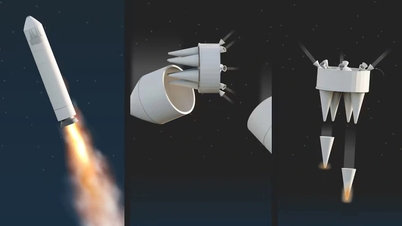
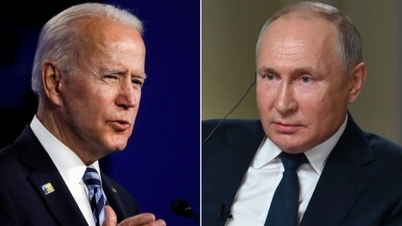

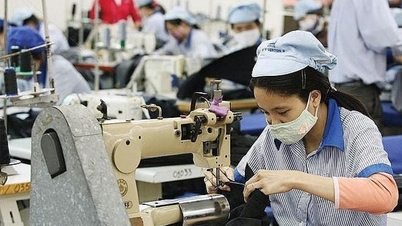


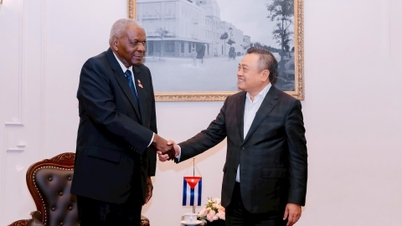
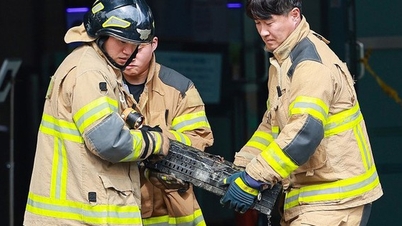

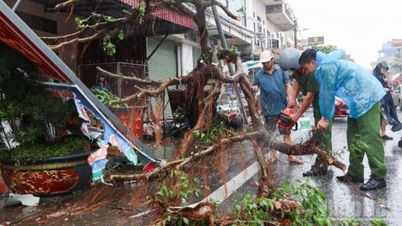





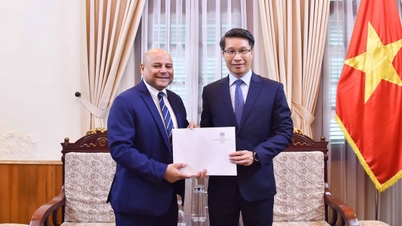

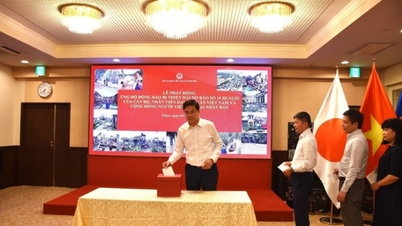
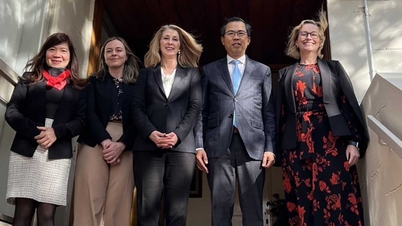

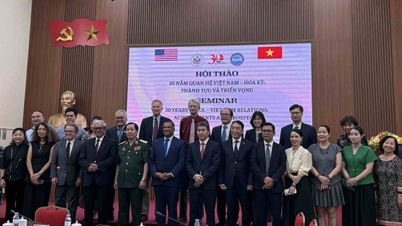
























![[VIDEO] Summary of Petrovietnam's 50th Anniversary Ceremony](https://vphoto.vietnam.vn/thumb/402x226/vietnam/resource/IMAGE/2025/10/4/abe133bdb8114793a16d4fe3e5bd0f12)

![[VIDEO] GENERAL SECRETARY TO LAM AWARDS PETROVIETNAM 8 GOLDEN WORDS: "PIONEER - EXCELLENT - SUSTAINABLE - GLOBAL"](https://vphoto.vietnam.vn/thumb/402x226/vietnam/resource/IMAGE/2025/7/23/c2fdb48863e846cfa9fb8e6ea9cf44e7)















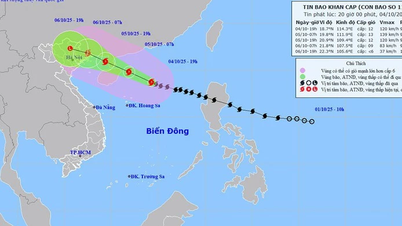

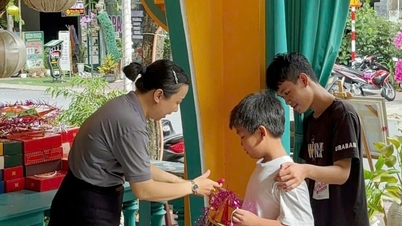















Comment (0)